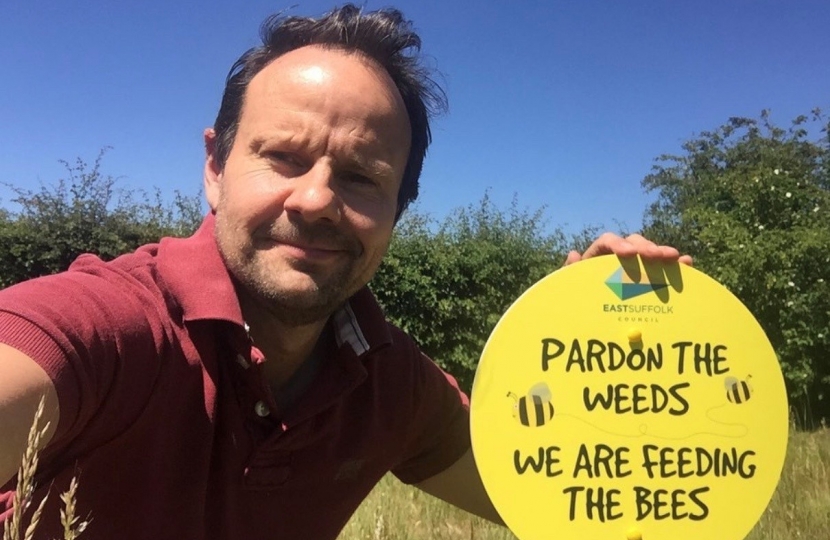
Non-essential grounds maintenance, including grass cutting, was temporarily suspended in April to ensure the safety of staff and the public. During this time, only grassed areas which presented a safety, visibility or access issue were cut.
Some of the areas where grass was left to grow longer over the past two months have started to ‘re-wild’, with anecdotal examples of increases in insect and pollinator levels, and an increase in the numbers of wildflowers.
As restrictions begin to ease, East Suffolk Council is reviewing the way these spaces are managed going forward. Forty areas across the district have been identified as ‘wild spaces’ where grass will be left to grow, wildflower seeds will be planted, and the area will not be cut until the end of the season. These areas, which are large enough to provide an environmental benefit and do not present any safety issues for local communities, will be marked with new signs to make residents and visitors aware.
Cllr James Mallinder, East Suffolk’s cabinet member for the Environment said: “We know our residents are keen for us to create more spaces for the benefit of wildlife and had already committed to trialling reduced strimming and cutting in Southwold and Saxmundham this year. Reduced grass cutting across the whole of East Suffolk, enforced by Covid-19 restrictions, helped us to identify these larger spaces which will be ideal for conservation and we will now manage these to help wildlife to thrive, through reduced cutting and the sowing of wildflowers.
“We are committed to promoting environmental sustainability and ensure responsible stewardship of our open spaces. By making these small changes, we are hopeful these conservation areas will benefit both wildlife and local people living nearby.”
Since declaring a climate emergency in 2019, East Suffolk Council has expressed its intention to increase the amount of wild spaces in the district, where a more conservation-based approach to cutting could promote biodiversity.
In addition, a trial of managing grass more sustainably in some churchyards has been well received, so this will now become permanent.
In residential and other key areas such as parks, grass cutting will continue as per the usual maintenance schedule.
Town and parish councils, supported by East Suffolk Norse, will be asked to monitor these conservation areas to remove litter and control any invasive plant species. Town and parish councils are also encouraged to contact East Suffolk Council to highlight additional areas which could benefit from a possible change in how they are managed.



